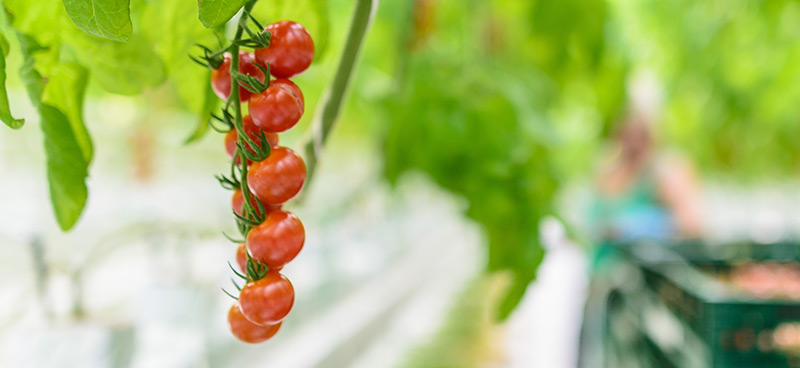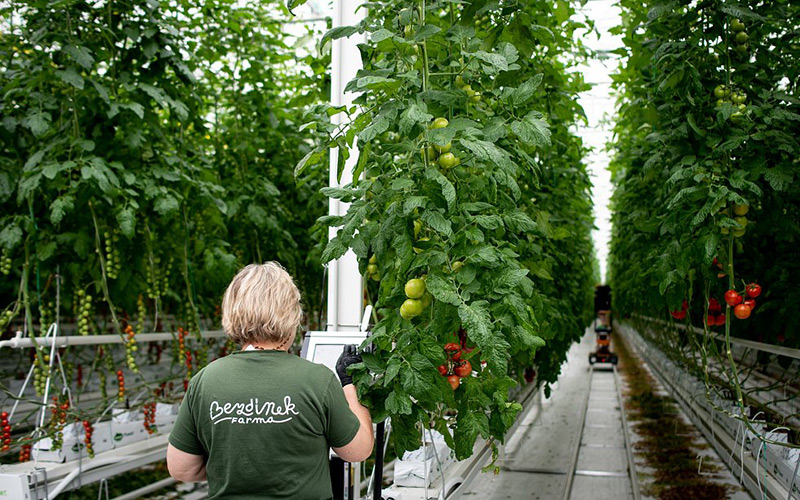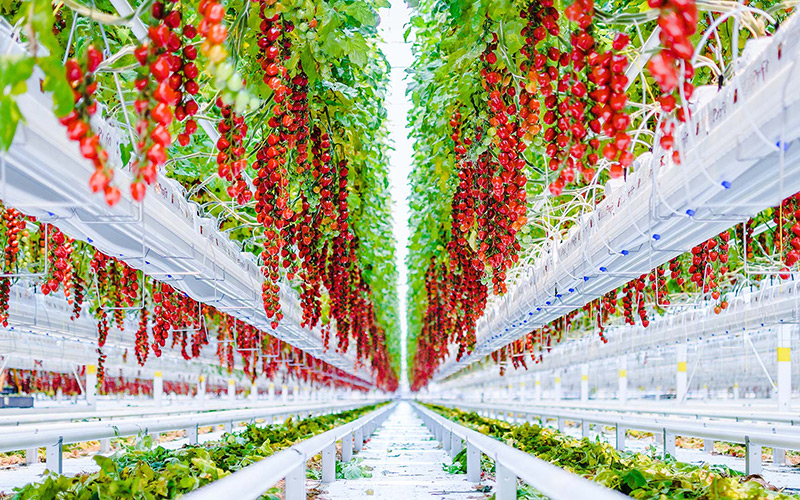
BERABOT – Robot Protecting Tomatoes
22. October 2020A robot carefully checking each and every tomato in a huge greenhouse. It evaluates the result of the production and is, at the same time, able to detect any plant pests in time. This unique project entitled BERABOT (BE – Bezdínek, RA – rajčata (tomatoes in Czech), BOT – robot) is implemented by a team of scientists from the Faculty of Applied Informatics (FAI) of TBU in Zlín in collaboration with the NWT Group and the Bezdínek organic farm.
Scientists from the Department of Informatics and Artificial Intelligence at the FAI are tasked with assembling an intelligent robotic system equipped with a unique camera system. The robot will move around the greenhouse between rows of tomatoes and analyse all of the plants carefully and in detail.
“The robot can estimate not only the amount of the resulting crop, but the cameras will record each individual fruit and each leaf in different spectra. Selected leaves are diagnosed and if a disease or pests are detected, the relevant information is immediately sent to a plant pathologist,” says Ing. Pavel Vařacha, Ph.D., a member of the team from the FAI.
Thus, the robot can detect pests such as whiteflies or leaf-miner flies, that attack the leaves. It also detects mould as well as a lack of nutrients or water.

In addition to providing the required hardware, scientists are also tasked with delivering artificial intelligence so as to ensure that the robot can think and see in a way similar to a human.
“A human does everything automatically, but here human thought has been replaced by the use of artificial neural networks. A computer is used to simulate neurons in the human brain and assemble them into a complex structure of deep networks. Instead of human eyes, our Berabot uses state-of-the-art machine vision algorithms that we develop,” adds Ing. Pavel Vařacha, Ph.D.
By participating in this project, Tomas Bata University has joined the group of elite international research units. Such an enormous task cannot be performed without international scientific cooperation with such famous institutions as the University of Tokyo.
“Consultations on the robotic part of the project were held directly at the University of Tokyo, namely at the workplace of Prof. Wei Guo. Colleagues from Japan also participated in a research fellowship at our Faculty and highly appreciated creativity, multidisciplinarity and systemic approach to tackling complex scientific and engineering tasks,” says Prof. Mgr. Roman Jašek, Ph.D., Principal Investigator of the project and Head of the Department of Informatics and Artificial Intelligence.
“I respect the creativity and level of expertise of applied research, cooperativeness and teamwork of the entire development team. I wish you a lot of success, I am happy to cooperate with you, we have plenty to offer each other,” adds Prof. Wei Guo from the University of Tokyo.

The NWT technology group is testing the results of this project at the Bezdínek Farm, which grows vegetables all the year round in a production greenhouse located in Dolní Lutyně.
The researchers will continue to work on the development of this system over the next four years. By using virtual reality and artificial intelligence, plant pathologists at the Bezdínek Farm will manage to save time and money necessary for checking of the individual plants.
“At NWT, we have always put emphasis on the interconnection between various areas of activity. The BERABOT project is a great example of it. The modern farming technique used to produce vegetables at the Bezdínek Farm will be combined with IT during the implementation of a meaningful project. Moreover, thanks to the involvement of Tomas Bata University, we have an opportunity to interconnect the private sector with the academic world, which we greatly appreciate,” says Ing. Vít Štěpánek, Head Manager of Sales ICT, which is a component part of the NWT, about the project in a brief summary.
The project has ambitions to offer the BERABOT system for sale abroad and, thus, to put a fully competitive and innovative product on the European market.
